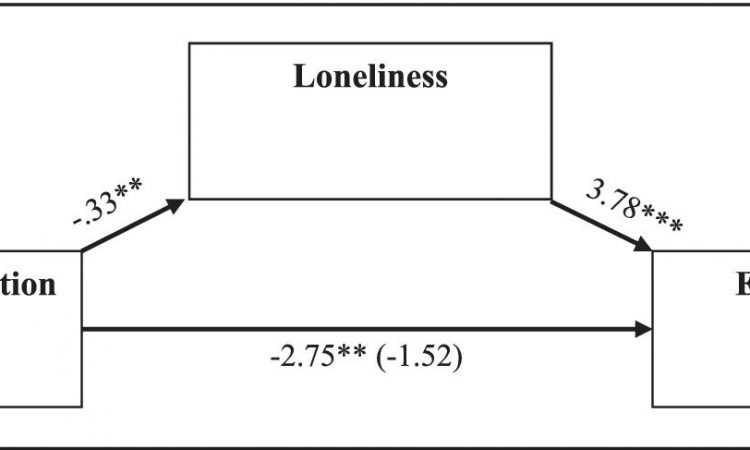
People with eating disorders who identify strongly with their family are more likely to have fewer and less severe symptoms due to a reduction in loneliness, according to research by psychologists at Nottingham Trent University, the Australian National University, and University College Cork, Ireland.
Across two studies, more than three hundred people who identified as having an eating disorder were questioned on their family identification, loneliness and eating disorder symptom severity.
The larger of the two studies focused on the impact of COVID-19 lockdowns, where participants were also measured on their anxiety and the impact of the pandemic in relation to their eating disorder.
At the start of COVID restrictions, findings showed that people with eating disorders were worried about things like access to foods that formed their meal plans, limitations on exercise and loss of support from groups and health services. Their levels of loneliness, anxiety and eating disorder symptom severity were all seen to be extremely elevated.
However, across all ages, genders and diagnoses, people with eating disorders who identified strongly with their family felt less lonely, had fewer symptoms such as negative eating-related thoughts and behaviors, felt less anxious and felt less impact of the COVID restrictions.
Dr. Juliet Wakefield, senior lecturer in Psychology at NTU’s School of Social Sciences, said: “Across our studies we found that family identification was associated with reductions in eating disorder symptom severity in general, as well as in anxiety during the early stages of the COVID-19 pandemic. This was due to the decrease in loneliness which, in the second study, predicted a reduction in fears of the eating disorder-related impact of social distancing measures.”
The research examines the topic through the lens of a Social Identity Approach to Health (SIAH), which argues that identifying with, or feeling a subjective sense of belonging to, a social group unlocks health-enhancing psychological resources such as social support.
Associate Professor of Social Psychology and research program lead, Dr. Niamh McNamara, added: “By applying the SIAH, our study shows that these health benefits occur due to family identification predicting reductions in loneliness. The results support the idea that families are an important social recovery resource for people with eating disorders and help us understand why increased connection during the COVID-19 pandemic may have benefitted them.
Source: Read Full Article
